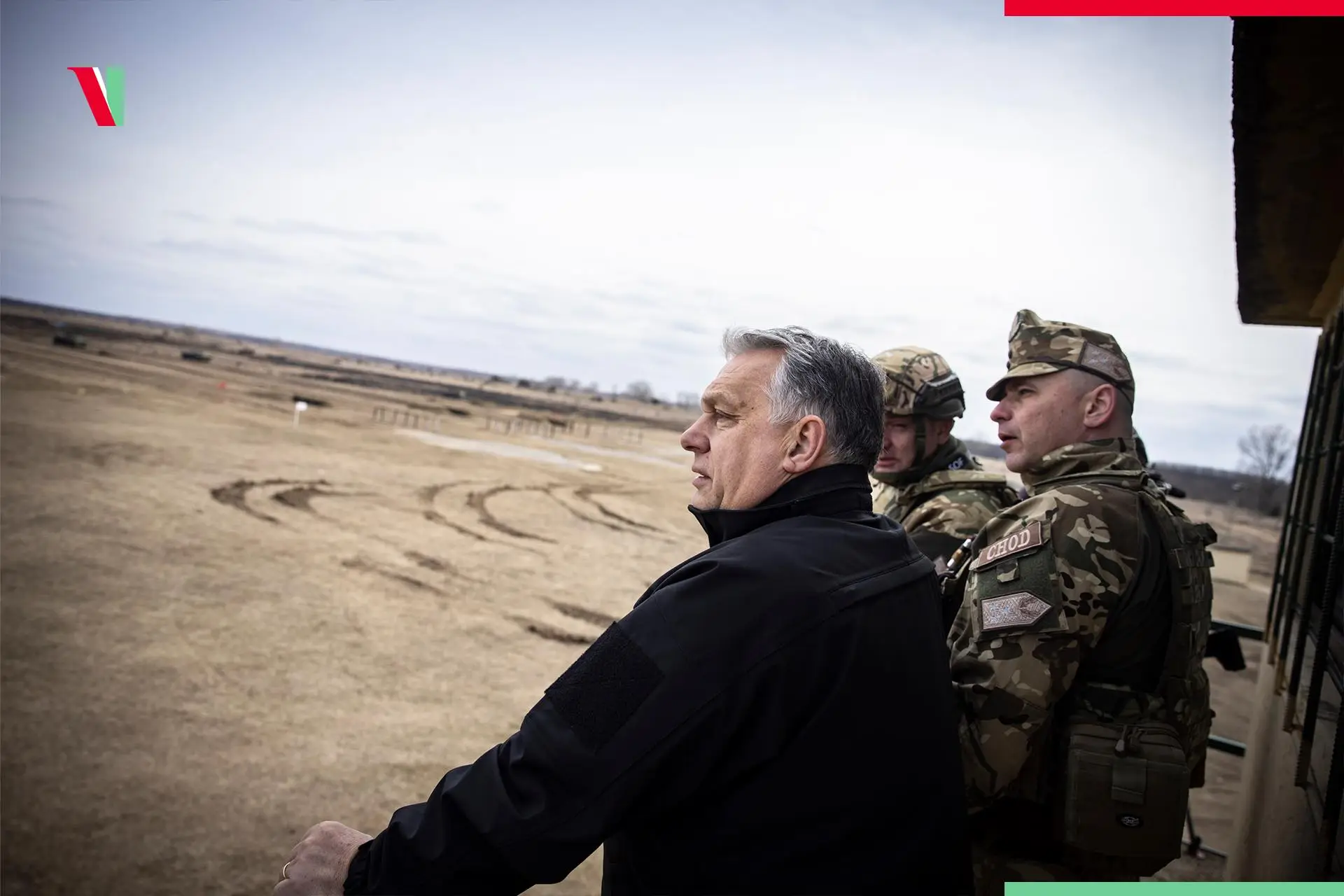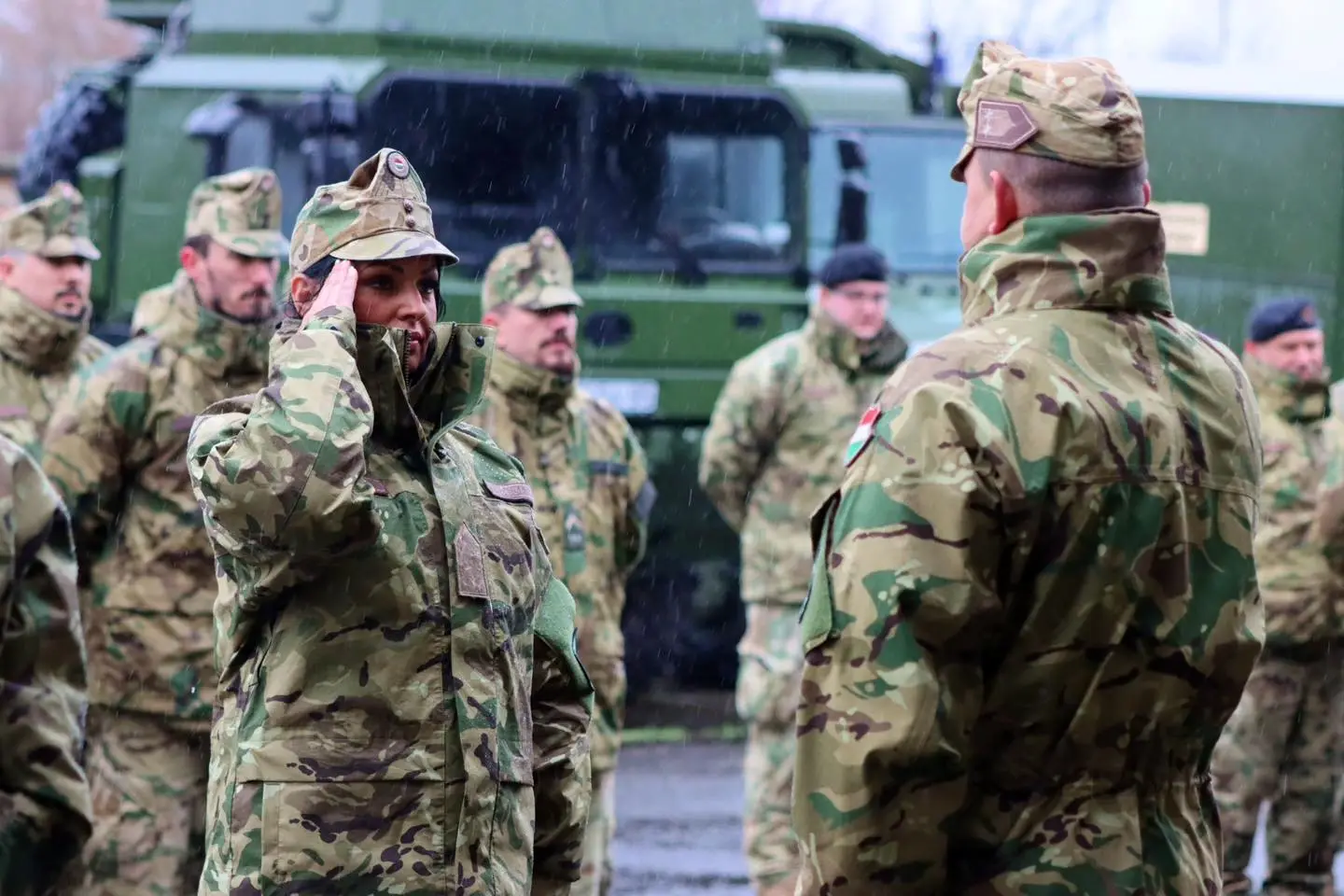Change language:
Hungarian minister: Ukraine NATO membership ‘not subject of realistic discussion’

Realistically, NATO membership for Ukraine “is clearly out of the question” as this would raise the threat of a direct conflict with Russia, the foreign minister said in Washington, DC on Wednesday.
Speaking on the sidelines of a NATO summit, Péter Szijjártó said talks had been plagued by “enormous duplicity… They are trying to conjure an image of [Ukrainian] NATO accession while everyone knows this is out of the question and cannot be a matter of discussion.”
Szijjártó said the situation had led to “grammatical summersaults” in the summit’s closing declaration, “because if NATO admitted Ukraine, we would live under the constant, open and extremely dangerous threat of war, as Ukraine’s NATO membership would foreshadow direct conflict between Russia and NATO.”

While that is no one’s goal, “the mainstream is suggesting that the closest possible cooperation is necessary,” he said.
Hungary was only willing to agree to the closing statement if it stated that any future NATO accession of Ukraine must be adopted unanimously, he said.
Ukraine will not be invited
“Once again, Ukraine will not be invited to NATO, so its membership is effectively off the table. Of course, everyone will make statements on how important it is,” he added.
Szijjártó said that NATO had earlier considered countries “good allies” based on their contributions to NATO security, participation in missions and the money spent on them.

“They are now starting to rewire the issue,” Szijjártó said, insisting that those helping Ukraine the most were considered the best allies. “But Ukraine is not a member of NATO, and NATO’s security depends not on how strong Ukraine is but on how strong we are.”
Of its 32 member states, 23 have fulfilled the alliance’s aim to raise defence spending to 2 percent of GDP, Szijjártó said, noting that Hungary had reached that milestone 3 years ago.
“If we scratch the surface a little, it becomes obvious that many countries have included weapons delivered to Ukraine as part of that 2 percent, even though that does not strengthen the alliance’s collective security,” Szijjártó said.
“This is a kind of hypocrisy, as NATO’s strength and defence capabilities depend on our own strength and not that of Ukraine, as NATO is a defence alliance rather than an aggressor alliance,” Szijjártó said.
No Hungarian soldiers will participate in such an operation
Regarding the requirement that countries spend 20 percent of their defence spending on development, Szijjártó said Hungary was spending 48 percent of its own defence budget on defence and industrial development, the second highest ratio in Europe.

“The measure of who is considered a reliable and good ally should be who contributes to NATO’S security rather than political pamphlets and statements,” he said. “Hungary will continue to focus on attempts to keep NATO strong and not let it drift into the war.”
The draft resolution launching a mission to support Ukraine by coordinating weapon deliveries and military training operations endangered that aim, Szijjártó said.
“We have made an unequivocal agreement with the incumbent and the incoming [NATO] secretaries general … that no Hungarian soldiers will participate in such an operation, and the country’s territory cannot be used to advance such aims and budget resources cannot be funnelled into it,” he said.
Hungary will also keep out of a support fund for Ukraine, he said. “I think this is dangerous, not only because it’s a lot of money, but also in view of the underlying approach. A long-term financial plan for a war shows that they think it will drag on for a long time,” he said.
New bridge, border crossing may be built
Hungary has delivered an action plan to Ukraine with proposals on developing economic cooperation and creating special economic zones on either side of the border, Szijjártó said in Washington, DC on Wednesday.
The proposals also involve building new border crossings and rail links, renovating a bridge across the River Tisza and strengthening energy cooperation, he said, commenting on an hour-long meeting with his Ukrainian counterpart the previous day on the sidelines of the NATO summit.
“It’s clear that if two neighbouring countries cooperate, energy security can also improve on a mutual basis,” Szijjártó said.
The minister also put forward proposals to enhance cooperation in education and humanitarian areas.
He said the action plan could set ties within a new framework of development, adding that his counterpart promised to examine the plan and respond with Ukraine’s own proposals.
More and more weapons
Szijjártó said Kyiv had spoken positively of last week’s Hungary-Ukraine summit. The positions of the warring parties were “very far from each other”, he noted, and both sides saw the possibility of a ceasefire and peace negotiations differently.
“So much needs to be done to attain peace, but we must work on this,” he said, adding that there was “a very serious risk of escalation” in light of the “increasingly brutal” war developments from day to day.
He said there were “more and more weapons on both sides on the frontline”, and he referred to the recent “cruel” and “hearbreaking” attack on a children’s hospital.
Szijjártó said he and his Ukrainian counterpart were in agreement that the start of Ukraine’s EU accession negotiations opened “a kind of new chapter” in cooperation between the two countries, noting that Kyiv had vowed to restore the rights of the Hungarian national minority, adding that this was no longer a bilateral issue but had become formally a European one, too.
“We in Brussels must keep this issue to the fore and ensure that the rights of the national community are returned. In turn, this allows us to conclude a new bilateral compact on developing cooperation at a level that’s good for Ukraine and good for Hungary,” he said.
Read also:








The closing declaration is definitely worth a read:
https://www.nato.int/cps/en/natohq/official_texts_227678.htm?selectedLocale=en
Mr. Szijjártó´s “mainstream” comment is quizzical – since every country appears to be aligned, with one major exception. Our Politicians need the veto – because, as is not unusual, be it NATO or the EU, Hungary pretty much stands alone. The member of the club who always knows better and disagrees with everyone else (quite literally).